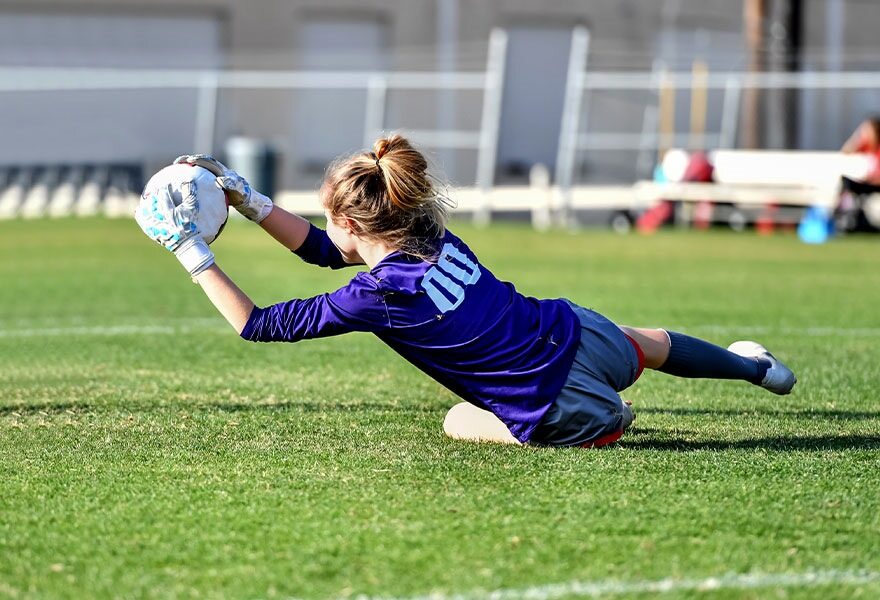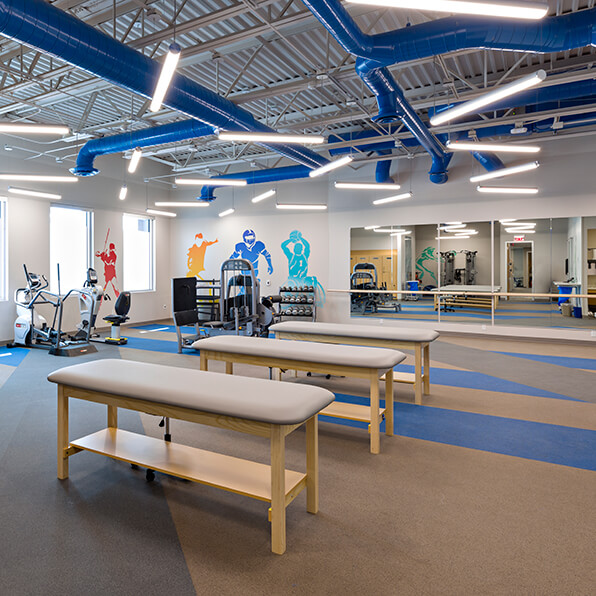A knee cartilage injury can lead to swelling of the knee, pain, tenderness, locking, and limited movement, whether through acute damage or wear and tear over time as part of osteoarthritis. Suffering such an injury can keep you sidelined… will you ever return to sport?
Having such an injury, or defect in cartilage, can be likened to having a pothole in the road. Treatments, therefore, aim to essentially, “fix a hole in a cartilage defect like you would fix a pothole in the asphalt,” explains Daniel Saris, M.D., Ph.D., orthopedic surgeon, Mayo Clinic Orthopedics and Sports Medicine. The traditional means of doing this was through the microfracture procedure, where holes were made through bones into cartilage, the purpose being to trigger the body’s healing response. This would create a scar to then fill in the defect. However, that scar can eventually turn into bone which can cause pain, clinical complaints, and osteoarthritis, and is therefore not a durable option for any extended period of time, which studies have also backed up.
That is why Mayo Clinic orthopedic surgeons and physicians have been at the forefront of researching and implementing regenerative medicine cartilage restoration techniques that get you back to play as soon and safely as possible, for as long as possible. One such technique is called MACI, or matrix-associated autologous chondrocyte implantation (the chondrocyte is the single type of cell that articular cartilage has for renewal). This procedure uses the body’s own cells to repair cartilage defects in the knee and has been FDA approved since 2016. It has the added benefit of often being covered by insurance.
Two stage process:
In the first stage of the MACI process, a minimally invasive, in-patient knee arthroscopy is used to clean out the damaged cells and then remove cells from healthy tissue and send them to a lab. In a period of a few weeks, new cells are grown on a membrane scaffold. When those cells are implanted into the knee where cartilage is damaged, it results in the creation of a 3-D structure. This, Aaron Krych, M.D., orthopedic surgeon, co-director, Mayo Clinic Orthopedics and Sports Medicine, explains, “more closely mimics natural cartilage, which allows for faster healing and lowers the risk of complications.”
The procedure of implantation takes place under anesthesia typically a few weeks later; generally, the patient is able to go home the same day. Full recovery from MACI can take up to a year, so those who undergo this procedure need to be committed to an extensive rehabilitation program. Our team of physical therapists and will work in conjunction with your surgeon to create this plan specific to your needs and will be with you on every step of the journey.
Results:
In trials, when compared with the microfracture technique, MACI’s results prove better in both the short- and long-term, helping to improve function, decrease pain, and potentially delay or prevent arthritis. Dr. Saris explains, “we find that if we can treat patients early, we can change the course of their disease; we have results showing that they can return back to a high level of athletic capabilities.”
Am I a candidate for MACI?
Trials have shown there are certain types of patients who benefit most from MACI. “It can be effective for repairing isolated cartilage damage in the knee, but it’s not useful for people whose knee cartilage is diffusely damaged due to arthritis,” says Dr. Krych. To be considered, candidates must:
- Be between the ages of 16-50
- Have a healthy and “athletic” BMI
- Be a non-smoker
- Have cartilage that is intact except for the defect
Why MACI at Mayo?
This type of surgery requires experts with specific skills and expertise. While a few others in the U.S. offer it, at Mayo you not only receive world-class care, but you also have the knowledge that what we do is safe, well-investigated, and scientifically proven. “The patient is front and center in everything we do,” says Dr. Saris, “and we really care about them.”
Knee cartilage injuries are often accompanied by other injuries that the patient may not know about. At Mayo, our unique multidisciplinary team looks at all aspects of a patient’s injury. “In some cases, problems such as joint instability or misalignment may require another procedure to correct those issues, so the cartilage isn’t damaged again… or if a cartilage repair procedure fails, it’s generally because not enough attention was paid to other factors — the meniscus or the knee’s alignment or stability,” says Dr. Krych. Therefore, coming to Mayo for your MACI procedure means having the benefit of specialists who address all issues and work together to come up with the best treatment for your needs. Because of this team approach, Dr. Saris says, “our chance of success for the complex biological reconstructions is high.”
If you think you might be a good candidate for MACI, and would like to find out more, contact the specialists at our Knee Cartilage Clinic.
For more information, or to make an appointment, please visit sportsmedicine.mayoclinic.org.






